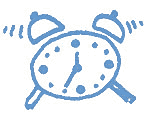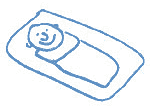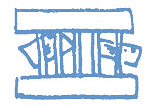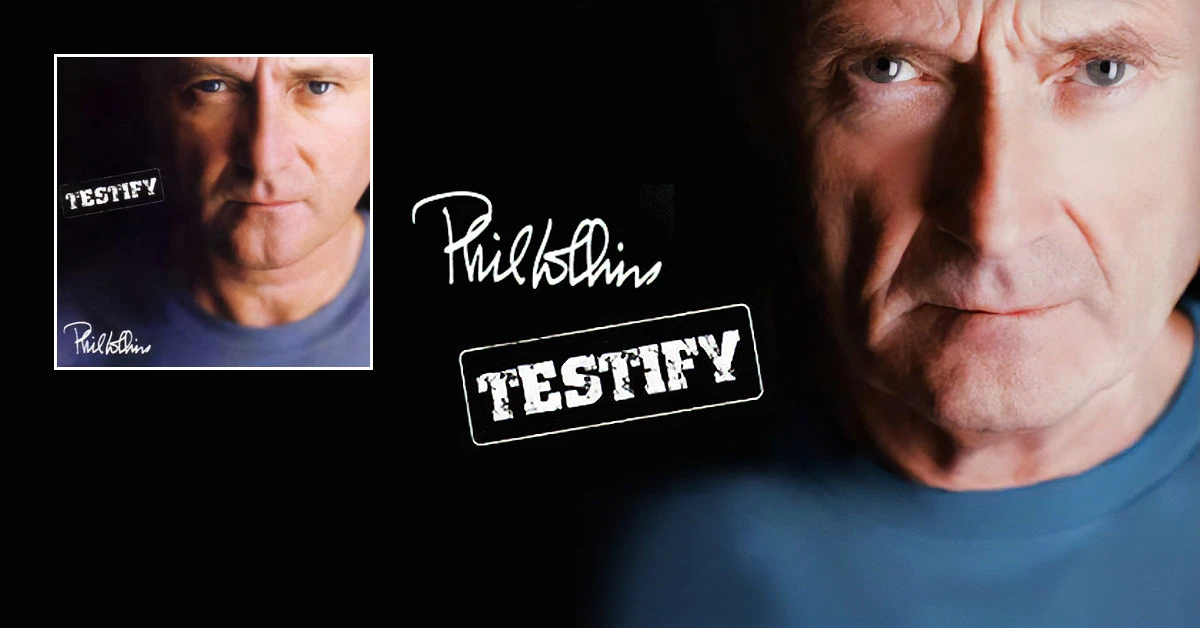- Article
- Read in 13 minutes
Phil Collins – Testify – review
Six years had passed since Dance Into The Light before Phil Collins released a new studio album called Testify in 2002. Bernd Vormwald has listened to it.
(Note: All statements in quotation marks come from Phil Collins. Since the original quotations are no longer available they were re-translated. The wording is likely to differ from the original.)
ALL YOU NEED IS LOVE …
…the BEATLES sang in the 60s. All you need is love, or, love is the only thing that counts. Giving and receiving love is the foundation of human existence, the best of all possible philosophies. Love in various forms is the central topic of Phil Collins’ new and very personal album that was released in November 2002. It’s about the love between a man and a woman (e.g. Can’t Stop Loving You, This Love This Heart, Testify) and the love for children (Come With Me, You Touch My Heart). It is also about the consequences of a lack of love, a lack of respect and of the total disregard of the basic requirements of human dignity (Don’t Get Me Started). With his new collection of songs Phil Collins tells us in music and in words what goes through his mind, and he called it Testify:
“You want to have an album title that represents the feelings of the individual songs. I think there are a number of optimistic love songs on the record. The songs are about my family, my children, my unborn children. When I recorded this album, my wife was still pregnant with Nicholas.Testify for me means ‘truth’.”
Background

Six years have passed since Phil Collins danced into the light to prove us his love. Now he presents us with a dozen new tracks (or even fifteen, if you also count the CD bonus tracks High Flying Angel, Tears Of A Clown and Hey Now Sunshine [as of February 2003]) that he put out on his seventh solo record (not counting soundtracks, samplers and the like). If you expected that the seven years Phil has been spending in Switzerland have changed his music so much that he yodles on Testify, you are in for a disappointment.
If you were hoping for spectacular, adventurous and experimental music with weird time signatures and other oddities, you, too, are in for a disappointment. And if you were hoping for a solid record that moves in the familiar Collins rock and pop universe of singing-songwriting between ballads and “some harder-edged stuff” (Collins), then Testify is an album for you. You might even get enthusiastic about the songs, two very debatable keyboard parts excepted.
Phil Collins: “I’m very happy with Testify. Now I release the album to the world outside to see whether it will float or sink. […] The songs are very optimistic. They reflect where I am in my life at the moment. I am very happy. There were times when I wondered: ‘Why should I release these songs at all?’ […] ‘Why should I expose myself to criticism?’ “
Both Sides Part II?
Long-time Collins fans will be pleased at Phil’s decision not to let Testify gather dust in some drawers in his new home in Switzerland. When you first listen to it, Testify seems peculiar, but the more familiar you become with it the more you enjoy the album. Testify is a kind of Both Sides Part Two. For the first time, Phil Collins used the computer to record songs. The new CD therefore consists of re-worked computer home demos recorded in Europa and the United States between 2000 and 2002.
“Working the the computer was fantastic, I really enjoyed it a lot. I had never worked with computers before. I tried to steer clear off them. In recent years I have worked a lot in the film business and, without computers, I would have been lost. I found out how to use them by trial and error. The first time around one of the Genesis technicians helped me. He equipped the studio and he knows everything about computers, so he camed around and stayed at my house for a fortnight.
I wrote everything he said into a book. This book is now my computer bible. After he left I would call him two or three times a day, then it was a phone call a week and now it’s one call per month. […] I really only use the computer for music. So far I have not let computers enter my life. I don’t know how to send an e-mail. When I want to tell somebody something, I send them a fax oder call them. I want to keep the computer out of my life as much as possible. I think it’s safer that way.”
A different production approach
Unlike Both Sides, Phil Collins did not record Testify all on his own, but with a crew of musicians made up of old and new hands. On the guitar he is supported by Tim Pierce and Daryl Stuermer (on two songs). Paul Bushnell plays bass. ‘Additional programmings’, i.e. drum loops, were provided by James Sanger. Jamie Muhoberac plays keyboards on two songs, while Eric Rigler plays the bagpipes once. (For details about the musicians and producers you might want to explore www.allmusic.com. Tim Pierce, for example, played on The Corrs’ album Talk On Corners, as did Anthony Drennan who stepped in on the Calling All Stations tour for Daryl Stuermer who was touring with Collins at the time. Sometimes things come round in mysterious ways in the world of music.)
Who played on which song? (an overview; songs are numbered 1-12)
TIM PIERCE
Guitars: 1,2,3,4,5,6,7,8
Guitar: 9,10,11
Nylon Guitar: 12
JAMES SANGER
Additional Programming: 1,2,3,4,5,8,11
PAUL BUSHNEL
Bass: 3,4,5,6,7,8,9,10
DARYL STUERMER
Guitar: 9,10
JAMIE MUHOBERAC
Keyboards: 9,10
ERIC RIGLER
Uileann Pipes: 9
Dance Into The Light was recorded without any drum machine sounds. Collins has rediscovered the rhythm device for Testify. Cover and booklet, too, resemble earlier releases. The idea to have Phil’s face on the front cover and the back of his head on the rear cover has already been used on Face Value. Cute little illustrations for each song appeared in the booklet of Genesis’ We Can’t Dance. It is notable that Collins paid much more attention to polyphonic vocals and that the drums are integrated much more discreetly into the songs. The frequent and fitting uses of changing the key in almost every song is a characteristic of this album. The record was produced by Rob Cavallo who has also worked for Eric Clapton: “Phil writes from his heart. He is a great guy with a fantastic family. The album is about his love for them.”
The engineering and mixing was done by Allen Sides and Tom Lord Alge (for Can’t Stop Loving You). Doug McKean was responsible for Protool Engineering (and we hope at least he knows what that is).
The Songs
Wake Up Call (5:15)
The album begins with an up-tempo colourful Wake Up Call. Variety is achieved by the arrangement and several sophisticated changes in the key. Unfortunately, Collins has dug up the annoying “beeping sound” for his keyboard solo (2:21 – 2:50). It already marred Both Sides and does not really help enjoying this song.

“Wake Up Call is one of my favourites. The basic ideas of the music had
developed quite some time ago, but it took shape only at the computer.
I love the lyrics with its dose of optimism and the anticipation of
future events. Sometimes we forget that we ourselves are responsible
for they way we shape our lives.” Wake Up Call is scheduled as the
second single release in Germany and other countries. It is an unusual
choice, but then Genesis’ Mama was not the normal selection for a
single in ’83.
Come With Me (4:35)
Come With Me was originally a lullaby Phil sang to his daughter Lily (born March 13, 1989) when she was a baby “seriously” touring the world with her dad. “Years later I would hum our god-daughter Justine asleep with this melody. I decided to record it for a couple of friends who at the time had babies, too. During the recording sessions this tender and hypnotic song developed. The lyrics were written only after Nicholas was born (on April 20, 2001)”.

The chorus of Come With Me resembles the old song Guten Abend, Gute Nacht [a German lullaby; translator’s note] (music by Johannes Brahms, op.49, Nr.4, 1868). Like many lullabies, it’s in 3/4 which is a time signature not often used in rock and pop music. The last 3/4 time appeared in Collins’ repertoire on Dance Into The Light; another example are the verses of Your Own Special Way.
Tim Pierce’s guitar sound remind the reviewer of U2 guitarist The Edge (during the chorus, e.g. 1:02-1:05) and of Mike Rutherford (from 1:11 on). Perhaps the Rutherfordian bits come from a keyboard – who can say in today’s music?
Collins uses a mouth organ sound for the keyboard solo (2:37-2:54). The “beeping” is finally over, at least until the final song of the album…. Collins is often inspired to write songs by his offspring (Joely, Simon, Lily and Nicholas) from his three marriages (Andrea, Jill, Orianne). On Testify, Come With Me, Swing Low and You Touch Me Heart owe their existence to this source of inspiration as much as Father To Son (on …But Seriously) and You’ll Be In My Heart (on the Tarzan soundtrack).
Testify (6:31)
Testify is one of the most direct and most personal lovesongs I have ever written. The lyrics were improvised in the process of recording, writing and recording again.” In The Air Tonightdeveloped the same way. “This song is a love letter to my wife.”

Testifyand Wake Up Callare the most complex songs on the new album. The musical density and force of this Genesis-like soul song increase from an unobtrusive ethereal intro to the grand finale in memoriam In The Air Tonight. The thin snare sound (from 1:08 onwards) resembles Way Of The World from Genesis’ We Can’t Dance. It would be interesting to know who sang on the (sampled?) choir bits at 1:53 and later. The guitar sounds in the background (5.19 – ) and the key changes makes this song even more enjoyable.
Don’t Get Me Started (4:42)
This up-tempo song reminds the reviewer of the version of The Roof Is Leaking Phil played on the But Seriously tour. It is a lot catchier than the first three songs. A positive musical atmosphere provides an interesting counterpart that contrasts the angry lyrics in a very special way. Normally, one would have expected a darker melody from the lyrics. Anger can be a positive, a constructive energy. One need not be overwhelmed and demoralized by all the sick stuff that is and always has been in this world – no need for resignation and depression either. The song follows a tradition of critical statements about politics and society Collins began with That’s Just The Way It Is, Colours, Another Day in Paradise, Both Sides Of The Story or even with Genesis’ Tell My Why (a line that appears in this song, too).

In an interview with German magazine TV Movie, which was conducted by Rüdiger Rafke, Collins also mentioned Don’t Get Me Started:
Rafke: “Was Don’t Get Me Started an attempt to rid yourself of frustration?”
Collins: “The title means ‘Don’t let me begin to talk about this, because things can get nasty when I really get going.’ There are many things that irritate me and make me angry. That’s what I sing about. Politicians who withhold information from us just so they still look good. And it makes me sick what the church has done with with their pedophile priests. In every other job these people would lose their jobs and get sent off to jail. The church, however, covers it with a blanket of silence.”
Rafke: “Is the song also about 9/11?”
Collins: “It is. These acts of terror prove: Religion more than anything else is the reason that there still are wars. Religion divides the people when it should unite them […]”
Swing Low (5:08)

Swing Low is a softly grooving song that developed (along with the quote from In The Air Tonight) near the end of Orianne’s pregnancy with Nicholas. “The close the probable date of birth came the longer it seemed to take – the waiting, the thoughts about how it will be…”
3:15 introduces a thin trumpet solo in Miles Davis’ style. You can also easily sing Lou Reed’s classic Walk On The Wild Side (or was it The West Side?) across the harmonies of the chorus. Try it. James Sanger’s tasteful programmings add to the joy of listening (not only) to this song.
It’s Not Too Late (3:59)

Soulful It’s Not Too Late has a smooth groove. It picks up an idea from the 1940s film On Borrowed Time, in which Death tries in vain to take someone to the Other World. Musically interesting is the snare on the first beat in the verses. The rhythm base reminds of techno beats. In the middle section the song is sparingly arranged which makes for a fine floating feeling. “It’s never too late to make your dreams come true. We all should try it.”
This Love, This Heart (4:05)

This Love This Heart impresses with four key changes in as many minutes. “The French use this device in their big ballads.” The song begins with familiar soft sound from a drum machine and prophet keyboards and grows toward a beautiful closing section.
Driving Me Crazy (4:38)

Christian Gerhardts, member of the re-formed it core team feels that Driving Me Crazysounds like the Backstreet Boys. However that may be, this song has lots of radio potential and nothing in common with Shakin Stevens’s hit in the 80s. “It is about the narrow path between love and dangerous obession. When you cross a certain line it can become a threat.” The peculiar vocals at 2:20 to 2:49 make this song even more interesting. It would be interesting how it would look if tied down to sheet music.
The Least You Can Do (4:22)

The music of this gem was written by Daryl Stuermer, Phil’s permanent companion down the paths of Genesis and his solo career for 25 (!) years. It’s not the first time Stuermer wrote parts of songs for Collins records. He co-wrote Only You Know And I Know, I Don’t Wanna Knowand Doesn’t Anybody Stay Together Anymore for No Jacket Required and Something Happened On The Way To Heaven for …But Seriously.
“I love this song. Daryl wrote it quite some time ago. When we had the opportunity, I completed the lyrics and we recorded it live with the band.”
Eric Rigler can heard for seventeen seconds in the intro. He already played the bagpipes on Collins’ cover version of True Colours. Daryl Stuermer provides another first-rate guitar solo (2:16-2:33) for a song that drifts away in the end while the listener would like to drift along. The Least You Can Do was released as the second single from the Testify album in several countries.
Can’t Stop Loving You (4:17)

Can’t Stop Loving You was the first single and it turned out a hit. “I heard Leo Sayer’s version ofCan’t Stop Loving You on vacation and I was impressed by the fantastic melody. I have attempted to breathe new life into this song and change its feel. “
The biggest changes in this powerful and compact cover version are the faster speed and the change from 3/4 to 4/4. There’s nothing left of the country music feel of the original.
The guitar arrangement in the second verse is remarkable: Tim Pierce (or good old Daryl?) get by with just one single note played rhythmically.
Thru My Eyes (5:07)

The only song to feature (sampled) brass resembles Philip Bailey’s song Walking On The Chinese Wall which was produced by Collins in 1985. The groove, e.g. the snare beat that is often moved ahead by one sixteenth in the verse, give this song an almost African feel – as does the choir in the end. The keyboard solo (3:30-3:50) sound like an accordeon. “Love is not always where you expect to find it. When you find it, hold it carefully in your hands. A heart breaks easily.
You Touch My Heart (4:43)

The last song in this album would have fit True Colours as well. It came about on a walk Phil took with his son Nicholas and Jack the dog. It is dedicated to little Nic. Collins said that You Touch My Heart was recorded very quickly, which did not do much good to the strange keyboard additions (2:27-2:39 and 3:25-3:53) – malicious rumours have it that the keyboards were played by little Nic.
An unusual instrument for Collins is the guitar with nylon strings. So far he only used this instrument on This Must Be Love (and as synth guitar on We Fly So Close). Spot the busy bass play!
Hey Phil, should you happen to read these lines, could you please send me a remix without the beeping keyboard sounds? Thank you.
All in all
My four-year-old daughter, a music enthusiast (favourite bit from the Genesis universe: the closing section of Island In The Darkness) most enjoys Come With Me and Can’t Stop Loving You. Attentively watching the video for Can’t Stop… she remarked: “Daddy, this Phil Collins is a great singer.” Daddy could not say it better.
Testify is probably no milestone like Face Value, but if you pay attention to the album you’ll find: Testify floats!
by Bernd Vormwald with additions by Melanie Kremer
translated by Martin Klinkhardt
main sources: www.philcollins.co.uk (defunct)
TV Movie interview by Rüdiger Raffke
ZDF Interview by Jessica Schwarz (7.12.02)

